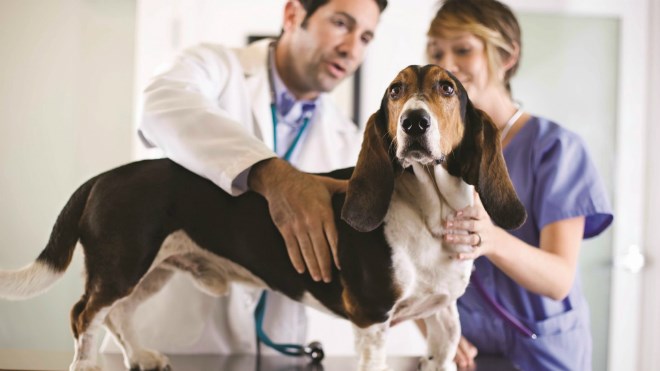Concerns over the quality of care and the impact on local veterinarians has the city's finance committee considering bringing in a means test to ensure subsidized spay and neuters go to those who need it most.
They were responding Tuesday morning to a presentation by Darren Stinson, a member of the Sudbury Veterinary Association. The association strongly opposes a plan to open a low-cost spay and neuter clinic in Sudbury proposed by the Ontario Society for the Prevention of Cruelty to Animals.
The clinic would be run by the SPCA and operate at double the capacity of a similar clinic in Barrie, able to do 50 procedures a day. It would employ four part-time veterinarians, four veterinary technicians, two administrative staff and a booking agent.
Building renovation and operating costs would be funded by the OSPCA, provided the city is willing to provide a building and a break on monthly rent. The OSPCA also proposes an outreach program as part of the clinic, “whereby they would facilitate transportation of animals from First Nations Reserves and remote locations in the north to the clinic and back,” the report says.
“This service is to address a need to those who cannot facilitate transportation for their animals.”
Calls for a low-cost spay-and-neuter clinic have been growing in recent years, with large number of unwanted animals being put down because there are no homes for them.
The cat population is particularly overpopulated, and the city’s current voucher program offers larger discounts for cat procedures in an attempt to curtail the population.
The city spends about $50,000 a year on the program, but the number of unwanted dogs and especially cats continues to grow. The number of dogs and cats being euthanized in Greater Sudbury has surged since 2005, when 291 cats and 75 dogs were killed. That compares to 465 and 100 respectively in 2012.
Stinson said the coupon program means people in “BMWs” who clearly don't need subsidies pull up to vet offices, with coupons in hand.
The association says it would make more sense for pet owners to prove they need a subsidy, for example, by showing forms proving they receive Ontario Works, subsidized housing, Ontario Disability certificate or other forms of social assistance.
The coupons would be restricted to spay and neuters on cats, which Sudbury's vets would provide for between $100-$125.
“There's not a problem with dogs,” he said. “There's only a problem with cats.”
“Currently our means test is first come, first served," was how Darlene Barker, the city's top bylaw officer, described the existing system.
Mayor Marianne Matichuk was one of many councillors voicing support for a means test. She also shared concerns Stinson raised about the quality of the spay and neuters pets receive at spay and neuter clinics. For her, that's a major issue.”
“I'm happy to see that there's (medical) standards," Matichuk said. “And I've never been in favour of not having a means test ... I don't like people just lining up for coupons."
She suggested staff look at some sort of hybrid model when it comes up with options for a new policy. Stinson says many people are "ignorant what's involved in sterilizing a pet," saying it's a complicated medical procedure.
Ward 7 Coun. Dave Kilgour said the underlying problem is irresponsible pet owners who allow their pets to roam without getting them fixed.
"Cats are not going to go to a clinic voluntarily," Kilgour said.
In a separate but related issue, Matichuk asked about the growing problem of feral cats in the city. Stinson said it's an issue unaffected by spay neuter policies, but is one that's having an impact on the local food chain.
The wild cats eat rabbits, birds, rodents – any small living creature they can find, none of which is able to defend themselves against feline attackers because cats that hunt are not a natural part of the local environment.
"Cats are remarkable predators," Stinson said. "They do serious harm to the ecosystem."
A staff report expected in August will outline options for the city's spay and neuter policies, including budget options, enforcement, a means test and public education for a spay and neuter policy.
A separate report will be prepared on the feral cat population in the city.
Join Sudbury.com+
- Messages
- Post a Listing
- Your Listings
- Your Profile
- Your Subscriptions
- Your Likes
- Your Business
- Support Local News
- Payment History
Sudbury.com+ members
Already a +member?
Not a +member?
Sign up for a Sudbury.com+ account for instant access to upcoming contests, local offers, auctions and so much more.
